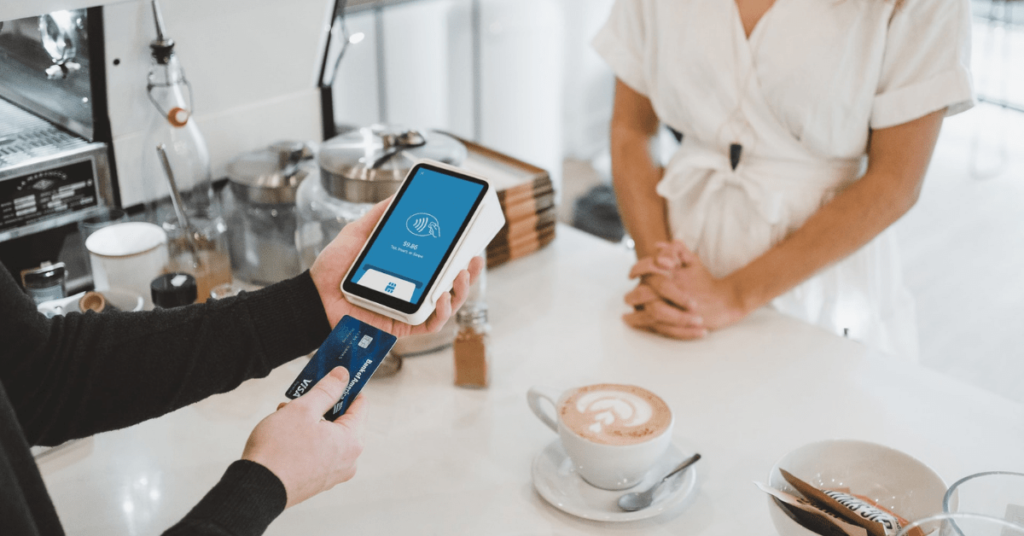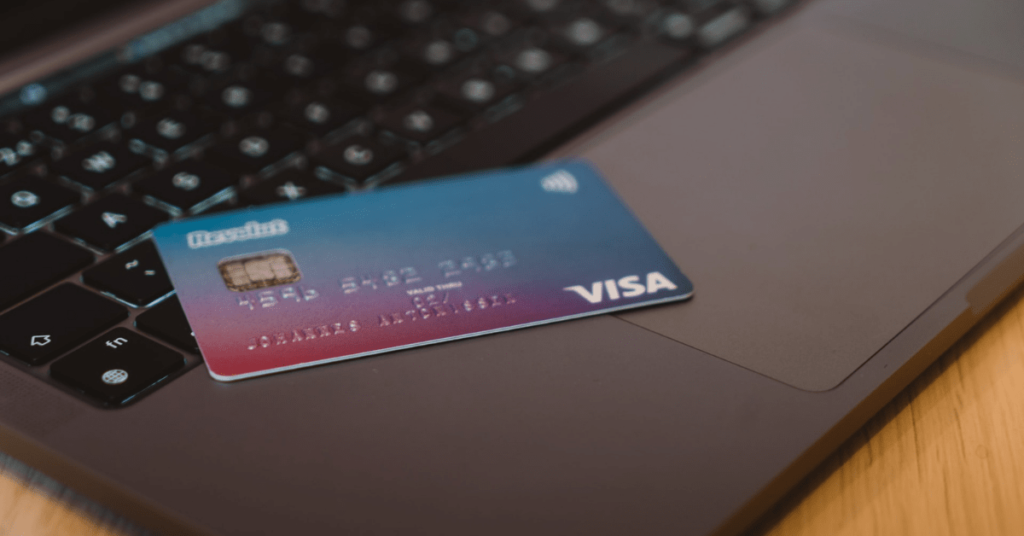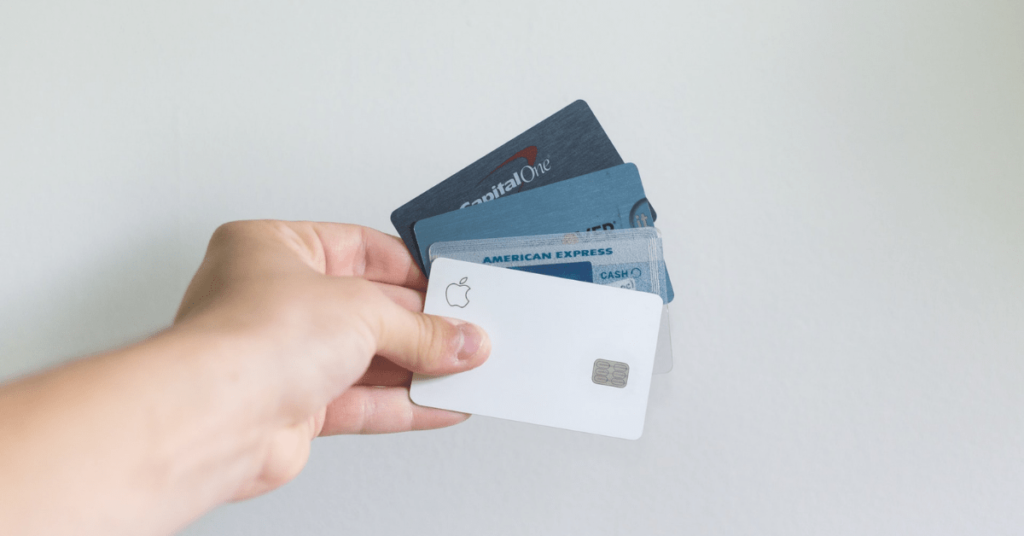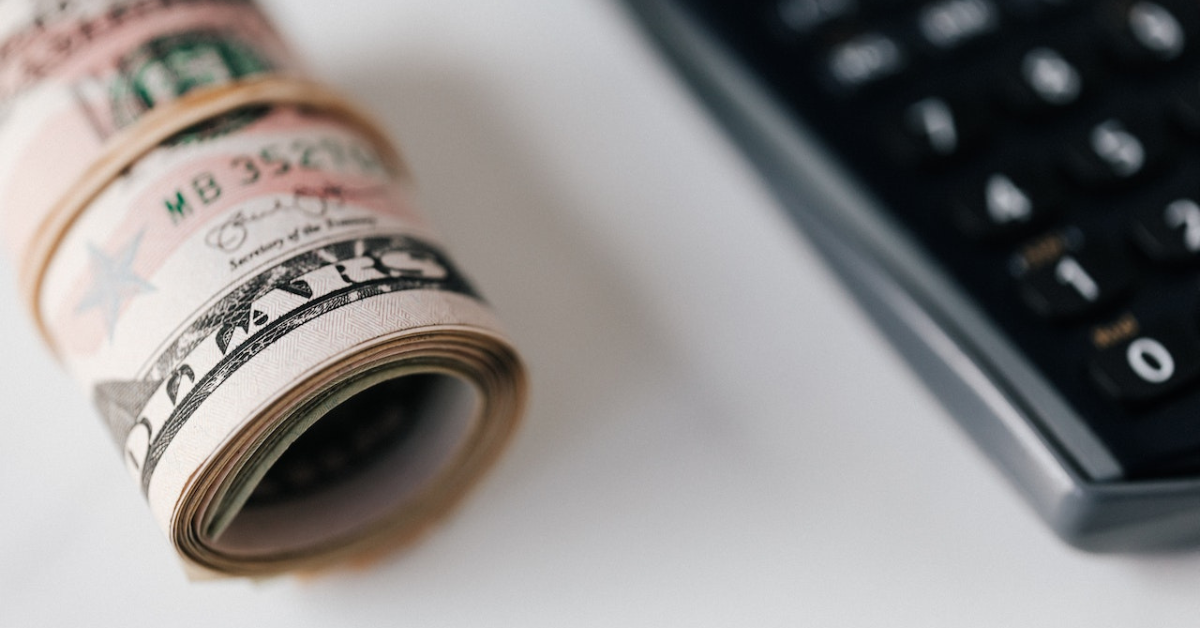
What’s the best way to make purchases: By cash, debit, or credit card?
80 percent of all payments are now made with a card according to stats from NerdWallet. Of those purchases, 67 percent are made with a debit card. When it comes to people who prefer to use only cash, this accounts for just 10 percent of consumers.
Why is there such a strong split between these three payment methods? As you’d probably guess, you can find strong arguments to support each. But sometimes there are also subtle disadvantages that might outweigh the benefits, especially if you’re not careful with how you manage your money.
In this post, I’d like to explore cash vs debit vs credit card payments more thoroughly and explain the pros and cons of each one. In the end, I’ll share my recommendations for what you should do and how you can ultimately decide to make your next purchase. I’ll also share what I do and why I do it.
This post may contain affiliate links. If you purchase a product or service from an affiliate link, we may receive a small commission. This supports our website and there is no additional charge to you. Thank you!
Cash

As the old saying goes, nothing spends quite like cash. However, our rapidly changing digital world may pose some challenges for relying too heavily on cash.
The Pros of Using Cash
The best thing about utilizing cash for purchases is that it’s very easy to set limits. For example, you could say I’m only going to spend $100 per week on groceries and then put it in an envelope. Once that money is gone it forces you to be very conscious about your spending.
This is why financial gurus will often recommend that if you struggle with budgeting to switch to an “all cash” budget for at least a few months. You’ll have no choice but to stay within the physical confines of how much money you’ve got to work with.
Along the same lines, paying for things with cash has been proven to be a very effective way of spending less than you would with other payment methods. Psychologists recognize this as a phenomenon as something they call the pain of paying.
Unlike a credit card where you won’t pay your bill for another month or so, cash payments make it so that you have to separate with your money right now. This can invoke undesirable feelings of loss and anxiety that will make it so that you hesitate and have second thoughts about your purchase. By setting yourself up in this way, that’s going to help you to not overspend.
The Disadvantages of Cash
One problem that people who try to use cash for all purchases run into is that it’s not always practical. The place where this becomes very apparent is the internet. You can’t buy things from Amazon or eBay with cash. To shop online, you pretty much have no other alternative but to use some form of electronic payment.
Cash is also not very safe. Think about if you were going to make a big purchase like a new laptop or furniture. Would it really be smart to go out in public carrying several hundred (or even thousands) of dollars on you? You could lose it or someone could try to steal it from you.
Finally, a big drawback to making payments with cash is that it does absolutely nothing to build your credit score. Though you may in fact be acting financially responsible by using cash, lenders won’t have any tangible proof of this.
Recall, that your FICO score is based on your credit history information. When someone uses cash instead of a credit card for purchases, they have no credit payment history. This can cause problems later on when you want to apply for an auto loan or buy a home.
Lastly, unlike many credit cards offer cash does not provide reward points. Therefore, by using cash instead of a credit card you could be losing rewards points. You could redeem the rewards to pay down your credit card bill, travel expenses, online shopping purchases, or for cash.
Debit Cards

Debit cards are the things you get from a bank that look just like a credit card. However, unlike a credit card, debit card purchases are withdrawn from your account immediately. This gives you some of the features of a credit card, but also some of the drawbacks of cash.
The Pros of Using a Debit Card
One of the best things about using a debit card is that they are convenient and safer than cash. Instead of going to the ATM and withdrawing wads of cash, a debit card makes it so that you can travel light and rely on just one little piece of plastic to buy whatever you need. Even if your card was lost or stolen, thieves would need to know your PIN in order to actually use it or withdraw your money.
Unlike a credit card, when using a debit card you won’t have to worry about being charged interest. Since the payments come straight out of your bank account, there’s no possibility of a revolving balance and therefore no interest can accumulate. (However, remember to be careful about the potential to overdraft your bank account.)
Another useful benefit to debit cards is that you’ll be able to capture more detail about your expenses. Whereas cash payments only let you know the amount you’ve spent, your debit card transaction history will tell you the name of every vendor where a purchase was made. If you’re looking for more detail about your spending patterns so that you can improve your budget, then this will help you.
The Drawbacks of Using a Debit Card
One big challenge of using your debit card is that you need to have all the money to pay for the things you want upfront. This ties back to the way debit cards work. Unlike a credit card where you’ll have roughly 30 days to get paid and accumulate enough income to cover your expenses, debit cards make it so that you need to have the money right now for your purchases.
Also, debit cards generally don’t offer any kind of reward programs the same way that credit cards do. Very few if any will rarely give you some kind of cashback or rebate for using them. That may cause you to lose out on potentially hundreds or even thousands of dollars in free travel or gift cards each year.
Finally, just like using cash, debit cards offer no benefit to your credit score. Even though they are electronic transactions, debit cards aren’t technically a line of credit. Therefore, the credit bureaus is not notified of your purchases. Thus, there’s no impact on your credit history.
Credit Cards

Credit cards have become one of the most widely used financial products in our society. They’re accepted virtually everywhere and are extremely popular with younger adults. However, credit cards have a long history of getting some people into lots of financial trouble.
Why You Should Use a Credit Card
The main reason why people love their credit cards is the convenience. A credit card can be used at almost any merchant and is pretty much the default payment method for most online retailers. In fact, a lot of them will save your information so that you can check out faster next time.
Similar to debit cards, credit cards are much safer to carry than cash. If your card is ever lost or stolen, then you can easily report it to the credit card company and you’d most likely be absolved from any fraudulent purchases.
Most credit cards offer you the opportunity to earn some pretty generous rewards. You can find offers that will give you around $200 of freebies just for signing up and meeting a modest spending requirement. Additional points will then accumulate as you continue to use it later on.
Most importantly, credit cards will help you build your credit score. Every payment you make gets reported to the credit bureaus. As long as they’re on time and meet the minimum payment requirement, you’ll be demonstrating good credit management. This will contribute positively to your FICO score.
Why You Shouldn’t Use a Credit Card
A huge drawback to using credit cards is that the high credit limit makes it way too easy to overspend. For instance, if your limit is $20,000, then you could mindlessly make purchases up to this amount without even realizing it.
There’s a lot of evidence to support that you’ll make purchases more freely with a credit card than other forms of payment. Remember the “pain of paying” concept? It works the opposite way with credit cards because you won’t actually make any real payments until your bill arrives.
That makes the pain less prominent every time you swipe your credit card. In one study, it was found that the average non-cash transaction was $112. However, when using cash, participants only spent $22!
Sadly, the credit card companies know all of this and they’re actually hoping that you do overspend. The higher your balance each month, the more likely you’ll be to not pay it off and let it revolve. And once it revolves, they can start charging you interest.
Let me dive a deeper into how the interest charges work. Let’s assume at the end of the month you had a balance of $100. You paid half of the balance, so you carried forward a balance (aka revolve) of $50. That $50 would start accumulating interest. In addition, ANY NEW CHARGES WOULD ALSO BE CHARGED INTEREST. So, if you made an additional $150 in charges the next billing cycle then the entire balance of $200 would be charged interest.
When left unchecked, interest and late fees can become a huge problem. Interest is charged daily on not just the principal amount you spent but also on any previously charged interest. That means it will compound and can end up becoming way more than the amount you originally spent.
What You Should Do

As you can see, there’s a lot to consider when trying to decide between using cash vs debit card vs credit card. Some methods will make it easier to restrict spending but may not offer the same benefits when it comes to safety or building your credit score.
The best strategy is to know yourself and your spending habits. If you’re able to make payments on time and not overspend, then feel free to use credit cards. But if you have a history of spending beyond your means, then maybe a debit card or cash is better suited for you.
Personally, I recommend using a mixture of the three methods that limit your risks and maximize the benefits as much as possible. For instance, you could use a credit card for bare essentials like gas and groceries so that you’ll build up your FICO score. But then you could use cash or debit cards for all other purchases.
What’s my payment strategy? I set aside a fixed amount of cash that I consider to be my fun money. I mainly use this money for entertainment, like going to the movies, or eating out. Why? I realized these were areas I was consistently going over my spending amount in my budget. By setting aside the cash and only using that amount helps me hit my target amount every month! I pay with a credit card for almost everything else and rarely do I use a debit card.
To know where you stand, take a moment to reflect on your past 3 to 6 months’ worth of transactions. How closely did you stay within budget and or how badly do you need to rebuild your credit history? Be honest with yourself because ultimately, you’re the one who will be affected. Get the most out of your purchases by being strategic and intentional with your actions.
Key Next Actions:
- Check your past spending habits against your budget. If you don’t have a budget and need some guidance on creating one then read How to Create a Budget You Can Easily Follow.
- Are you consistently staying within your budget and not using a credit card? If yes, consider using a card to increase your credit score (of course make sure to not over spend and pay it off at the end of the month).
- If you are exceeding your budgeted amount in a particular area, if possible, consider using cash for those items.
LEARN all that you can, BELIEVE in yourself, and take actions that allow you to GROW!
Get your FREE copy of the 5 Keys To Success Guide (click here).




